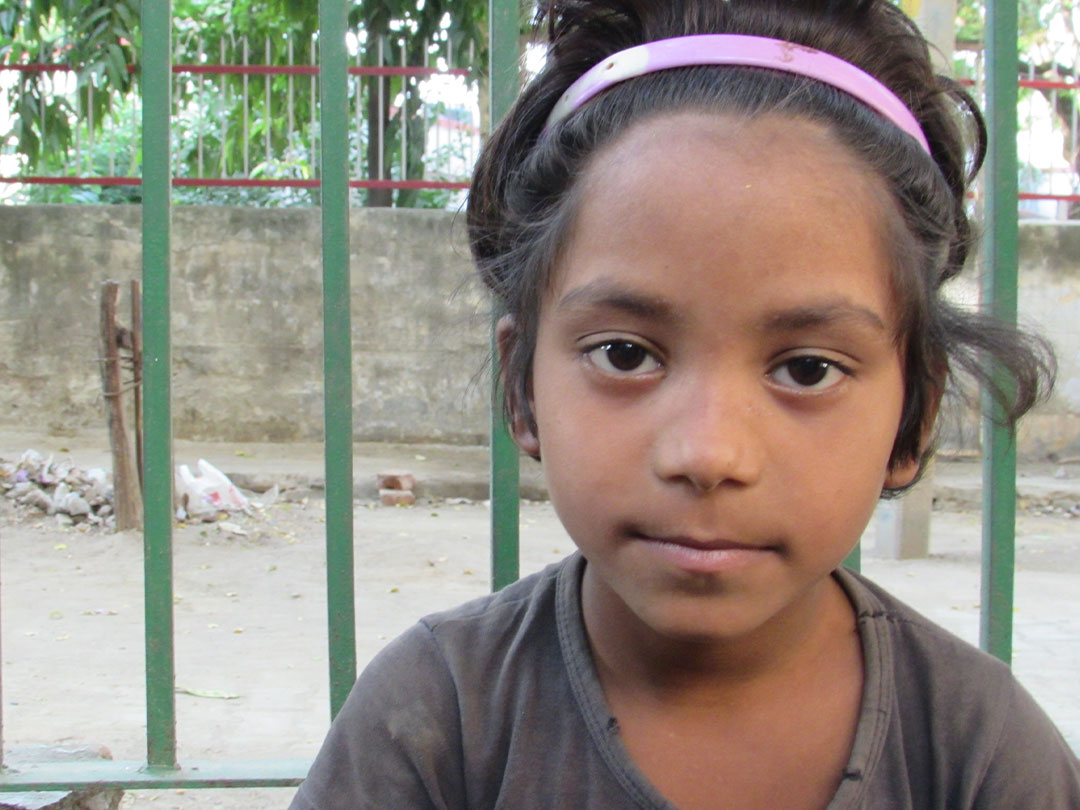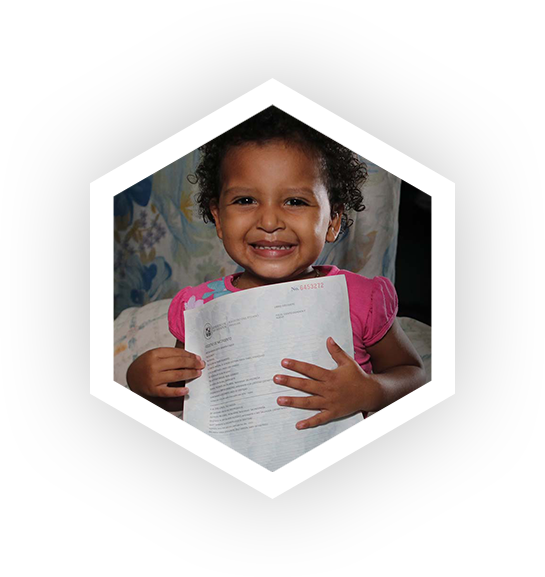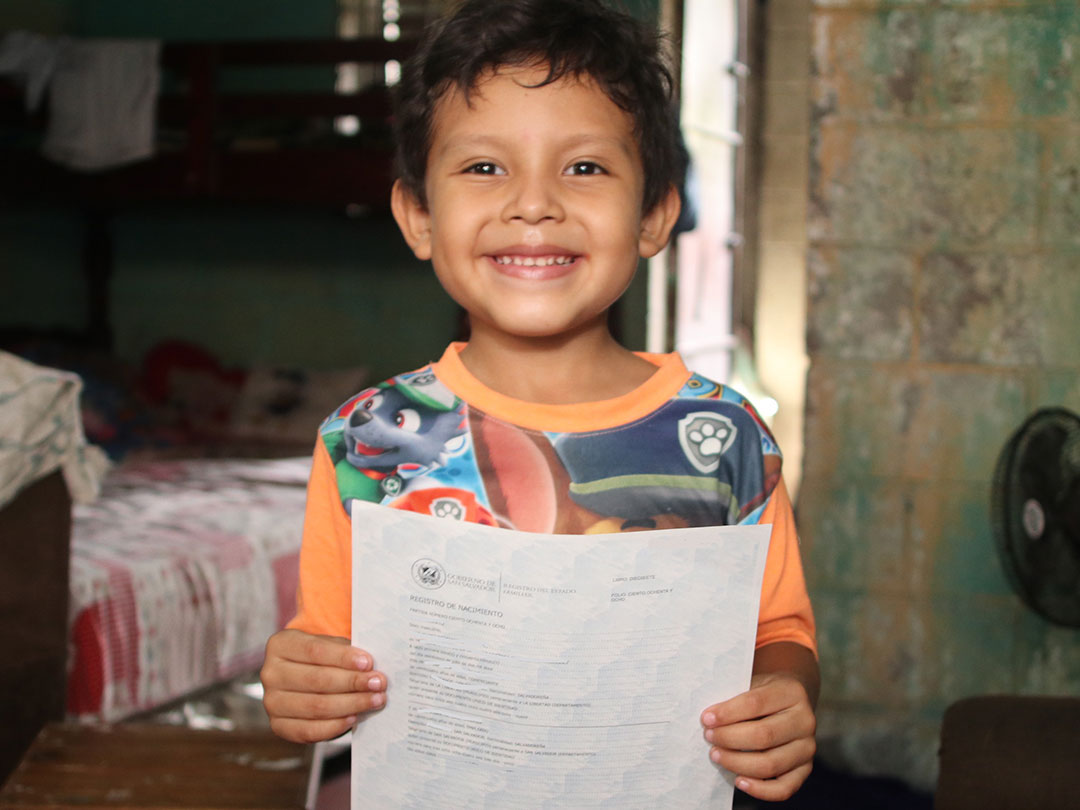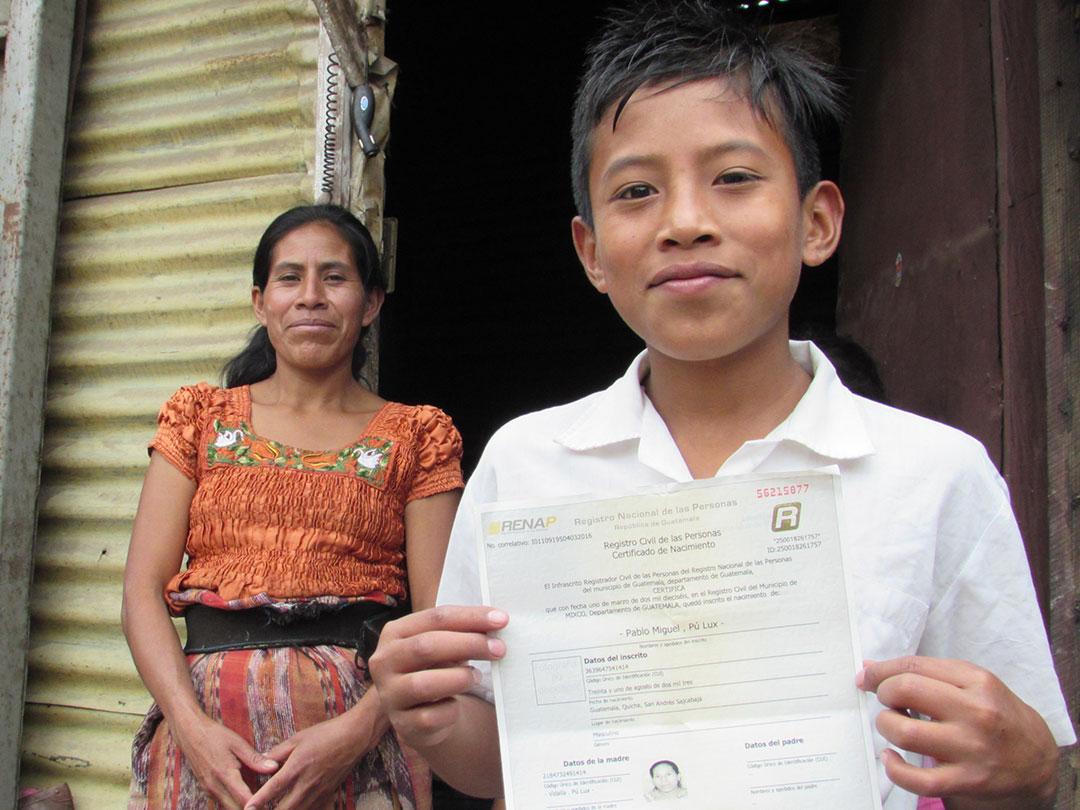Today 1 in 4 children under 5 do not officially exist.
Being registered at birth is the first step to gaining lifelong protection and a prerequisite to being able to exercise all other rights. Without it, no individual can access national social service systems such as healthcare, education or justice.

Many children that are born on to the streets do not have their births registered.
Despite being born and raised in a country, they lack formal recognition of their existence. Without this fundamental certificate they have no legal protection and inadequate access to social service systems, schooling, formal employment opportunities, healthcare and few protections against violence, trafficking and abuse.
A birth certificate, issued by national governments, legally records the birth of a person and provides them with proof that they exist.
A birth certificate opens the door to...
Access
- to healthcare
- to education
- to formal employment
Rights
- to a name, nationality and identity
- to government assistance
- to legal protection
- to die with dignity
Protection
- from trafficking and exploitation
- from under-age military service
- from hazardous child labor and economic exploitation
- from child marriage
Opportunity
- to open a bank account
- to own property
- to travel


